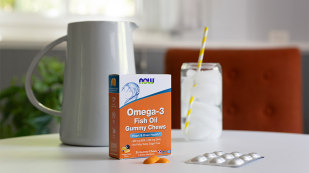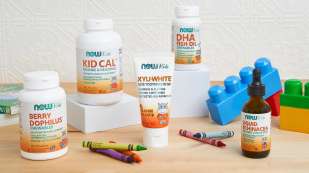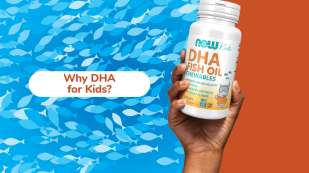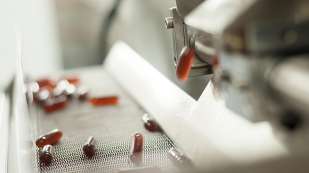Use coupon code CARDAMOM with your purchase of $40 or more for a free†
Cardamom OilXylitol FAQs

What is xylitol?
Xylitol is a sugar alcohol naturally found in certain fruits and vegetables that makes an excellent low-calorie sweetener. Our bodies naturally produce up to 15 grams of xylitol daily from the foods we eat, but xylitol has no substantial nutritive value. Its real value lies in its low glycemic (blood sugar) impact and the fact that sugar alcohols such as xylitol don’t promote dental cavities, as many sugars do.
Xylitol isn’t new to the natural products marketplace. It was initially discovered by a German scientist in 1891 but was largely overlooked until World War II, when sugar shortages prompted an innovative group of Finnish scientists to begin researching alternative sweeteners. Xylitol quickly became the group’s focus, and they named it “birch sugar” because it was derived from a fiber (xylan) found in the cellulose of birch tree bark. By the 1960’s xylitol was being commercially used in Europe, the Soviet Union, and Japan. Today it’s commonly used in the United States as a low-calorie, low glycemic sweetener.
What is xylitol made from?
Xylitol is commercially found in the cellulose of wood, sugar cane pulp, certain seed hulls, and/or corn cobs. NOW® Real Food Xylitol is produced from non-GMO corn cobs.
What are the most notable differences between xylitol and white table sugar?
- Xylitol is not technically a sugar; it’s a sugar alcohol, also known as a polyol. Unlike well-known, naturally occurring sugars such as sucrose, fructose, and dextrose, xylitol has five carbon atoms instead of six. This difference in molecular structure gives xylitol its unique benefits and sets it apart from sugars.
- Xylitol has a low absorption rate, after ingestion of 7g, no increase in blood levels of xylitol can be detected. After ingestion of larger doses, in excess of 17 g, a xylitol increase in the bloodstream can be detected, which indicates that only larger doses of xylitol reach the blood when taken orally. For reference, the largest serving size for xylitol in a NOW product is 8g, which means it is unlikely that ingesting one serving of our Xylitol product would result in raising xylitol blood levels. Xylitol has a low glycemic index score of 7 on a scale 0-100. For comparison, glucose scores a 100 on this scale.
- At only 2.4 calories per gram versus 4 calories per gram for table sugar, Xylitol boasts 40% less caloric impact, while providing approximately the same sweetness as table sugar.
- Xylitol tastes like sugar, but it adds a barely perceptible cool “icy” taste sensation due to the fact that it has what’s called a “negative heat of dissolution” – it slightly cools any liquid it’s dissolved in.
What is xylitol’s impact on dental cavities?
Use of Xylitol in mouthwashes and toothpastes is thought to promote optimal oral health by maintaining clean teeth and gums.
Refined sugar is the perfect energy source for many of the bacteria found naturally in the human mouth, such as Streptococcus mutans. When provided with a good supply of energy, these bacteria multiply much more quickly, and they produce harmful acids as a by-product of their energy metabolism. When enough of these acidic substances are produced, saliva pH is lowered. If saliva pH drops too far below the healthy neutral level of about 7.0, the calcium and phosphate elements of our tooth enamel can start to dissolve, and small pores begin to form. This is the beginning of cavity formation. Because xylitol is a sugar alcohol and doesn’t ferment, it is not a source of energy for these acid-producing bacteria. This means bacteria count can be better controlled and the healthy neutral pH of saliva can be better preserved, which discourages the formation of cavities.
Here is the FDA-approved health claim for xylitol: “Frequent between-meal consumption of foods high in sugars and starches promotes tooth decay. The sugar alcohols in [name of food] do not promote tooth decay.” (Dietary Noncariogenic Carbohydrate Sweeteners and Dental Caries; 21 CFR 101.80)
What does the scientific community say about the safety of xylitol?
The FDA states that xylitol may be safely used in foods. (21CFR172.395)
Xylitol was reviewed by the Joint WHO/FAO Expert Committee on Food Additives (JECFA), and it was assigned an ADI (Acceptable Daily Intake) of "not specified," which is the highest safety rating that JECFA can give to a food additive. This means that, on the basis of available data (chemical, biochemical, toxicological, and other), the total daily intake of xylitol, arising from its use at the levels necessary to achieve the desired effect and from its acceptable background in food, does not, in the opinion of the Committee, represent a hazard to health. For this reason, and for reasons stated in the individual evaluations, the establishment of a numerical figure of an acceptable daily intake (ADI) is not deemed necessary.
What is the recent controversy about xylitol and health?
A study published in June 2024 in the European Heart Journal examined the occurrence of major cardiovascular events in a population of individuals with known cardiovascular disease in relation to their xylitol blood levels. The same report cited research on 10 healthy subjects fed 30 grams of xylitol and found increased levels of plasma xylitol for up to 6 hours after ingestion, which is above thresholds associated with heightened platelet reactivity and thrombosis potential in in vitro and animal studies.
The maximum amount of xylitol per serving used in NOW products is 8 grams.
The authors of the study that generated controversy about xylitol stated: “Our studies suggest that xylitol will likely confer heightened thrombosis potential in the same vulnerable patients that it is marketed towards and intended to protect (e.g., subjects with diabetes, obesity, and CVD).”
Author also reported: “Our studies have several limitations. We only measured baseline fasting levels of xylitol in our clinical cohort studies; thus, whether serial measures of xylitol provide enhanced clinical prognostic value for CVD risk assessment remains unknown. In addition, as noted, our observational cohorts do not have dietary information. Moreover, our subjects have a high burden of CVD risk factors, and whether the results can be translated to a community-based setting needs to be determined.” “The rapid rate of xylitol excretion observed in healthy volunteers with return to near baseline (fasting) levels within hours following ingestion of a significant dietary exposure suggests that the plasma levels observed in our observational (validation) cohort represent variations in endogenous production/levels and not food intake.”
That said, people who have known cardiovascular disease, can consult with their physician regarding the use of xylitol. In addition, consult a physician about whether xylitol can be used at the same time as anticoagulant/anticlotting/”blood thinning” medications, the use of which are intended to counter clotting factors.
Comments from the NOW Science Team:
It is important to note that the discovery and validation cohorts were not healthy populations (average ages were respectively 65 and 63, mainly obese men (BMI>25); >20% were diabetics, >70% had high blood pressure, >75% had known coronary heart disease,). Therefore, the results of the cohort study should not be applied to a healthy population.
Because xylitol is normally produced internally in humans from blood sugar, there is no way to distinguish between the ingested xylitol and that produced in humans as a result of normal metabolism of other carbohydrates. A plausible explanation for this is that plasma xylitol is a non-harmful biomarker resulting from glucose- or fructose-rich diets or conditions that increase or impair blood sugar. However, this has not been confirmed in clinical trials.
The recent European Heart Journal article draws a connection between elevated serum xylitol levels and cardiovascular events. However, numerous publications have examined the health benefits of xylitol, notably for dental health. Other clinical studies have also looked at the cardiovascular effects of xylitol, for example, in one study published in 2023, 42 participants received 24 g xylitol a day or a placebo for 5 weeks, researchers looked at the effect of xylitol or placebo on arterial stiffness and demonstrated that xylitol had no effect on arterial stiffness just like the placebo. These results suggest that ingesting even large amounts of xylitol has no effect on the arterial wall.
Are there any cautions or warnings regarding the use of Xylitol?
Yes: “KEEP OUT OF REACH OF PETS AND ANIMALS. DO NOT FEED XYLITOL OR ANY PRODUCT CONTAINING XYLITOL TO YOUR PET OR TO ANY ANIMAL.” (More Xylitol Pet Safety)
Humans: Xylitol is recognized by the U.S. Food and Drug Administration as a safe food sweetener for people. Large amounts of xylitol (typically 30 to 40 grams or approximately 7 to 10 teaspoons), taken at one time, can produce undesirable temporary symptoms such as diarrhea and intestinal gas in susceptible individuals. If this happens, reduce intake or discontinue use.
We are adding a caution on our xylitol powder products in response to a recently published study highlighting a potential correlation between high blood levels of xylitol and cardiovascular events. Our new caution is: Diarrhea may occur with excessive consumption. If this happens, reduce intake or discontinue use. If you have cardiovascular disease, a blood clotting disorder, or impaired kidney function, please consult physician before consuming xylitol.
Animals: While xylitol is perfectly safe for humans, it should never be fed to animals and pets, in particular dogs, ferrets and rabbits. Xylitol can cause an extremely rapid blood sugar drop or liver failure that may be life-threatening. NEVER feed xylitol or xylitol-containing products to pets. Ingestion of xylitol by pets, in any product, is a veterinary medical emergency.
If you suspect your pet ingested xylitol by either observing this happen or finding evidence of a chewed container or product, and the animal is acting normal, you should attempt to give animal(s) a small meal and at the same time, immediately seek veterinary medical attention. If you have evidence that they ingested any product that contains xylitol and the animal(s) is not acting normally, you should seek veterinary medical attention immediately without giving the animal any food.











